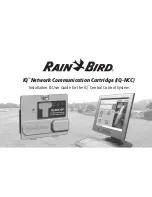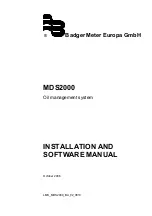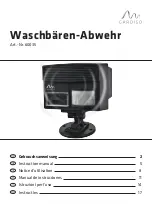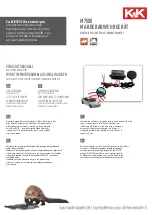
Getting Started
15
3. S
OFTWARE
I
NSTALLATION
& O
VERVIEW
To develop and debug programs for the RCM2200 (and for all
other Z-World and Rabbit Semiconductor hardware), you must
install and use Dynamic C. This chapter takes you through the
installation of Dynamic C, and then provides a tour of its major
features with respect to the RCM2200 module.
3.1 An Overview of Dynamic C
Dynamic C integrates the following development functions into one program:
•
Editing
•
Compiling
•
Linking
•
Loading
•
In-Circuit Debugging
In fact, compiling, linking and loading are one function. Dynamic C does not use an In-
Circuit Emulator; programs being developed are downloaded to and executed from the
“target” system via an enhanced serial-port connection. Program development and debug-
ging take place seamlessly across this connection, greatly speeding system development.
Other features of Dynamic C include:
•
Dynamic C has an easy-to-use built-in text editor. Programs can be executed and
debugged interactively at the source-code or machine-code level. Pull-down menus and
keyboard shortcuts for most commands make Dynamic C easy to use.
•
Dynamic C also supports assembly language programming. It is not necessary to leave
C or the development system to write assembly language code. C and assembly lan-
guage may be mixed together.
•
Debugging under Dynamic C includes the ability to use
printf
commands, watch
expressions, breakpoints and other advanced debugging features. Watch expressions
can be used to compute C expressions involving the target’s program variables or func-
tions. Watch expressions can be evaluated while stopped at a breakpoint or while the
target is running its program.
Summary of Contents for RCM2000 Series
Page 18: ...14 RabbitCore RCM2200...
Page 26: ...22 RabbitCore RCM2200...
Page 38: ...34 RabbitCore RCM2200...
Page 40: ...36 RabbitCore RCM2200...
Page 43: ...C NONE...
Page 46: ......
















































